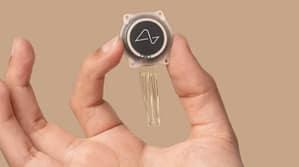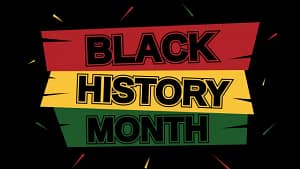
When most people think about coding, they picture computers, complex math, and endless lines of text and numbers on a screen. It can seem isolating, technical, and a little intimidating.
But here’s what often gets overlooked: coding doesn’t just teach you how to build apps or websites. It teaches you how to think, communicate, and collaborate in powerful new ways.
Learning to code can genuinely make you better at life—not just tech. From improving how you approach problems to how you work with others, the personal and social skills you gain might just surprise you.
1. Patience and Resilience
Let’s be real: when you’re learning to code, things break—constantly. Your website won’t load. Your code throws an error. That one line you added five minutes ago has somehow ruined everything.
It’s frustrating… but also kind of magical, in a subtle way.
Because with every bug you fix, you build something deeper than technical skill: resilience. You learn to stay calm, troubleshoot, and try again. You learn that failure isn’t final—it’s just part of the process. And that’s a skill that applies way beyond the keyboard. Whether you’re handling a tough work situation or navigating personal growth, that mental toughness and patience stick with you.
2. It Improves How You Communicate
It may seem counterintuitive, but coding can actually make you a better communicator.
Coding forces clarity. If you don’t give a computer clear, step-by-step instructions, nothing works. That same skill of breaking down complex ideas into simple, logical steps is essential in everyday communication.
Whether you’re explaining a new idea to a team, writing instructions for a coworker, or even just resolving a conflict, knowing how to structure your thoughts clearly makes a huge difference.
3. Teaches Collaboration
Coding is often seen as a solo activity, but in reality, tech is one of the most collaborative industries out there. From open-source projects to team-based development environments, coders are constantly working together sharing knowledge, reviewing each other’s work, and building off of one another’s ideas.
Learning to code often introduces you to communities where collaboration is key. You get better at giving and receiving feedback, working toward shared goals, and respecting different approaches to the same challenge.
These interpersonal skills translate beautifully to any team-based setting, whether you’re in marketing, education, nonprofits, or beyond.
4. Empathetic Problem Solver
One of the most powerful soft skills coding develops? Empathy.
Think about it: when you’re coding, you’re constantly putting yourself in the shoes of others. You ask:
How will a user interact with this feature?
What happens if they make a mistake?
How can I make this more intuitive?
That user-focused thinking is empathy in action. You’re not just solving problems for people. That mindset shift is something that applies everywhere, from leadership to customer service to design.
Great coders are thoughtful coders. And that thoughtfulness shows up long after the computer is closed.
5. Creativity and Confidence
Coding isn’t just logical, it’s creative. In fact, it’s one of the most versatile forms of self-expression available today. You can build your own website from scratch, automate a task you hate, design a game, or create an interactive story. The possibilities are endless.
And here’s what’s amazing: every time you build something, no matter how small, you prove to yourself that you can figure things out. That confidence compounds over time. Suddenly, you’re not afraid of complex tools, new platforms, or unfamiliar tech because you know you’ve learned hard things before.
You start to see challenges as opportunities, not obstacles. And that kind of confidence is contagious, both in and out of the workplace.
6. It Encourages Lifelong Learning
Coding isn’t something you master and walk away from, it’s an ongoing journey. The tools change. The languages evolve. The communities grow.
It teaches you to stay curious, adaptable, and humble. It keeps your brain sharp. You’re constantly Googling, experimenting, failing, and learning again. You start seeing problems as puzzles, and the world as a place full of systems you can explore and improve.
This mindset of lifelong learning is valuable in any field, especially in a world that’s changing as fast as the tech world.
Coding Is About More Than Code
Yes, coding is a technical skill. But what it gives you goes far beyond the screen and software.
It gives you…
The resilience to keep going when things don’t work
The clarity to explain complex ideas
The empathy to design with people in mind
The creativity to build what you imagine
The confidence to say “I can figure this out”
And the curiosity to keep learning, always
Whether you want to launch a startup, lead a team, teach in a classroom, or just understand the digital world better, learning to code can unlock a deeper, more human set of skills.
So if you’ve ever thought, “I’m not a tech person”, think again. You don’t have to be obsessed with computers to benefit from coding. You just have to be curious. Because at the end of the day, coding isn’t about computers, it’s about people.



